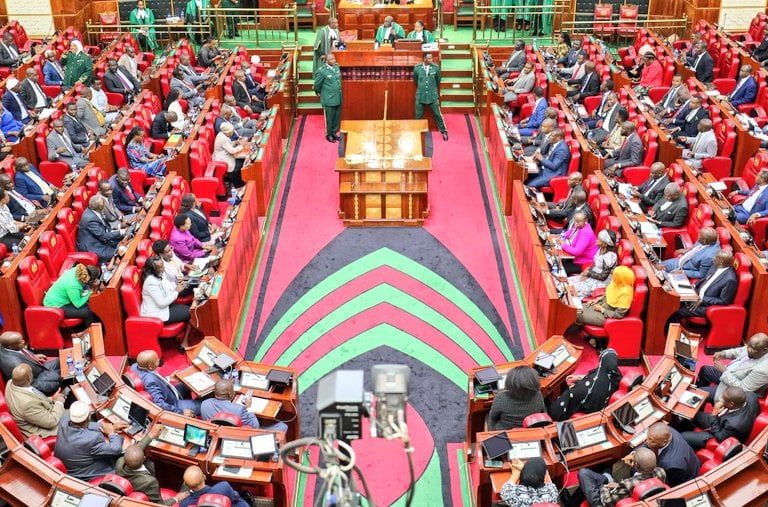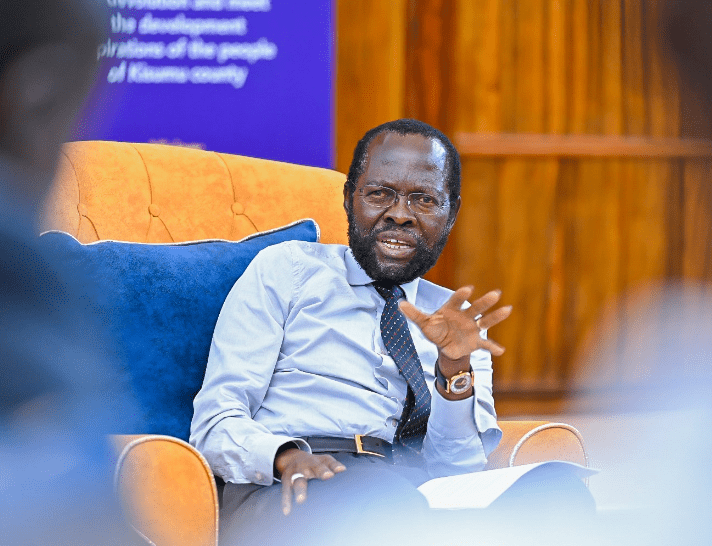MPs’ Sh366k shame as Kenyan taxpayers struggle

At a time when millions of Kenyans are grappling with relentless economic shocks, members of parliament have once again chosen self-interest over public service.
The Salaries and Remuneration Commission (SRC) recently approved an additional Sh366,011 monthly mileage allowance for MPs. One legislator, Amos Mwago, the MP for Starehe Constituency, has however rejected the pay hike, calling it “insensitive” and a betrayal of struggling citizens.
“It strikes me as a transparent attempt to bribe those in power—an act that goes against the very core of public service, which should always prioritise the welfare of the people over personal gain,” Mwago stated in a letter to the Clerk of the National Assembly.
Despite this rare show of dissent, most MPs are set to accept the bloated benefits, further widening the gap between the political elite and the everyday Kenyan.
The new allowance takes effect on April 1, adding yet another financial burden to taxpayers already suffocating under the weight of excessive levies and inflation.
The SRC’s approval followed a request by the Parliamentary Service Commission, reinforcing the culture of entitlement among legislators.
Beyond the fixed mileage allowance, MPs representing constituencies more than 205 kilometres from Nairobi will claim Sh156.2 per kilometre for one return journey per week, adding to the staggering cost of maintaining Kenya’s political class.
heir sitting allowances remain exorbitant—Sh15,000 per session for committee chairpersons (capped at Sh240,000 monthly) and Sh12,000 for vice-chairpersons and members.
By the end of their five-year term, this will cost taxpayers an additional Sh4.4 billion.
Rising cost of living
Meanwhile, the ordinary Kenyan struggles to survive on a minimum wage of Sh15,201.65—barely enough to cover rent, food, and transport.
The recent 6 per cent wage increase announced by President William Ruto in November 2023 has done little to cushion workers against the relentless rise in the cost of living.
The average Kenyan earning Sh50,000 per month takes home only Sh37,000 after numerous deductions, including 1.5 per cent for the housing levy, 2.5 per cent for the Social Health Authority (SHA), and 6 per cent for the National Social Security Fund (NSSF).
Public services remain in a deplorable state despite these heavy deductions.
Patients relying on the SHA system for medical care face endless frustrations due to bureaucratic inefficiencies and unpaid hospital bills.
The health sector nearly collapsed in recent months, exposing the government’s failure to manage healthcare funds effectively.
Pensioners, many of whom contributed to government schemes for decades, continue to die before receiving their rightful benefits due to endless delays in disbursement.
The sheer hypocrisy of the pay hike becomes even more apparent when considering the extravagant perks MPs already enjoy.
Each of the 349 MPs receives a monthly car allowance of Sh356,525, in addition to a car loan of up to Sh8 million and a house mortgage of up to Sh35 million, both at a heavily subsidized 3 per cent interest rate.
While Kenyans struggle to make ends meet, their leaders are securing luxurious lifestyles at public expense.
The cost of sustaining the political elite is crippling the nation.
Treasury Cabinet Secretary John Mbadi has repeatedly warned about the government’s unsustainable wage bill, revealing that Kenya spends over Sh1 trillion annually on salaries alone—one-third of total revenue collection.
“We are running a very expensive government. We are running a government that, in my view, will not help this economy grow as we want,” Mbadi admitted during a session with the parliamentary budget and appropriation committee.














